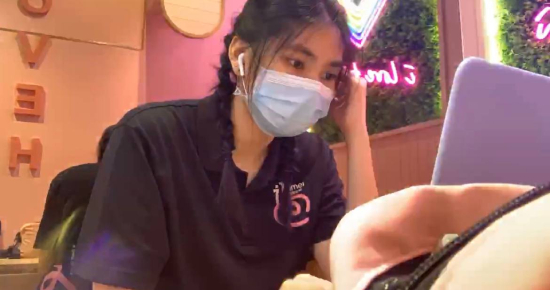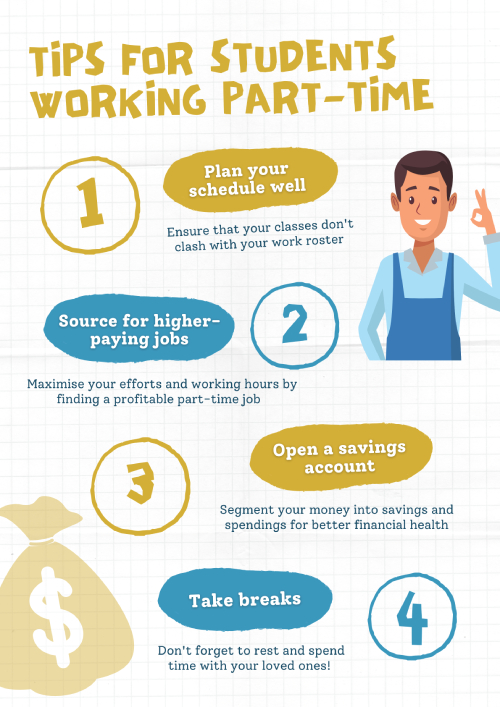
Chua Jia Wen is a full-time student who works 36 hours a week, juggling three part-time jobs while taking on freelance projects at the same time. Her jobs include being a cruise attendant, F&B service crew member and photo studio host.
“I had my Airpods in one ear and my laptop at the back of the shop while [I was] in the kitchen cooking up orders for my customers,” says Jia Wen, who once had to multitask while attending an online lecture during her work shift.

When she was just 15, the Ngee Ann Polytechnic student stopped taking an allowance from her parents out of her own will to “help lessen [their] burden”.
“My family is not extremely poor, it’s not like we have no money to afford anything,” she said. “But we’re also not well-off.”

She said her family doesn’t spend much on non-essentials because most of their income is used to cover medical bills. For example, her mother sees a nerve specialist every month.
In November 2021, both her parents were hospitalised on separate occasions. Her father had suffered a stroke. Although he was insured by his company, the payout was not enough to cover the bill. Jia Wen had to fork out a five-figure sum to settle the rest.
Seeing how these medical emergencies have depleted almost half of her savings, Jia Wen is even more determined to hold on to her part-time gigs to build up her reserves again.
Having a strong sense of duty, Jia Wen feels that not only should she pay for her own school fees, she should also cover the family’s utility bills and provide for her younger sister – when the need arises.
While Jia Wen has a head start over many students in terms of savings and work experiences, she has to deal with some trade-offs.
When she was in her first year in polytechnic, she failed to meet project deadlines as she was holding multiple part-time jobs. This gave her group mates the impression that she did not prioritise her schoolwork.
“I know that there are people who are not happy with me because sometimes I choose to work over [doing] school work,” she said.
Word got around and many classmates were wary of working with her. Some of her lecturers were also aware of the tension between her and her classmates.
“[The lecturers thought] I had some problems because I was not doing work, but I was really just tired from working part time,” she recounted. “I guess I can see why they were concerned because as a student, your job is to study, and I appreciate their concern.”
Jia Wen said she’s doing much better in her final year now. “[Although] I work part-time, I make sure I don’t fall too behind academics wise. I make sure I don’t have to retake modules and I still play my part in group projects,” she said.
She said: “Some people are fairly nice and understand [my situation] and help me to catch up. But there are still people who stigmatise me [by] saying things like ‘in Year One she didn’t do work because she always goes out and works part time so I don’t want to work with her anymore’.”
For now, Jia Wen believes that the pros of working part time still outweigh the cons. For example, she has learnt a lot about comforting disappointed customers and defusing difficult situations as a cruise assistant at Marina Bay Cruise Centre.
“Working part time can really help you to grow a lot and it’ll really teach you the harsh reality of what it [will be like] in the workplace,” said Jia Wen.
She’s also happy to be able to put aside at least 50 per cent of her paycheck for rainy days and works towards financial independence.
“I hope to enter university next year, and I still see myself working part time then,” Jia Wen said.

Proofread by: Ruth Loo Hui En
